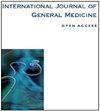对重症监护病房患者使用辅助肠外营养的临床实践指南进行评估
IF 2.1
4区 医学
Q2 MEDICINE, GENERAL & INTERNAL
引用次数: 0
摘要
背景:本评估旨在为重症监护病房(ICU)患者使用肠外补充营养(SPN)的临床决策提供参考。本研究的目的是评估国内外关于在重症监护病房患者中使用肠外补充营养(SPN)的临床实践指南的质量:采用系统方法评估了ICU患者使用SPN的临床实践建议的质量:结果:共纳入了五项营养建议进行分析。这些建议在研究与评估指南评估 II(AGREE II)的六个领域中的平均标准化得分如下:范围和目的得分为 87.96%,利益相关者的参与得分为 68.52%,制定的严谨性得分为 73.40%,表述的清晰度得分为 84.80%,适用性得分为 64.72%,编辑的独立性得分为 91.10%。在综合评估中,两份指南被评为 A 级建议,三份被评为 B 级建议。当 ICU 患者仅靠肠内营养(EN)无法满足能量和蛋白质需求时,大多数指南建议不要尽早使用 SPN。指南强调要达到目标能量水平,并在满足能量需求后立即停止肠外营养(PN),以防止过度喂养:本研究采用 AGREE II 量表评估了五项营养指南的质量。建议包括关注参与者、严谨性和适用性,以提高指南质量。临床医生在应用指南时应进行专业判断,因为指南是对培训和判断的补充,而不是取而代之。本文章由计算机程序翻译,如有差异,请以英文原文为准。
Evaluation of Clinical Practice Guidelines for the Use of Supplementary Parenteral Nutrition in ICU Patients
Background: This evaluation aims to provide a reference for clinical decision-making regarding the use of SPN in intensive care unit (ICU) patients. The objective of this study is to evaluate the quality of clinical practice guidelines for the use of supplementary parenteral nutrition (SPN) in ICU patients, both domestically and internationally.
Patients and Methods: The quality of clinical practice recommendations for SPN use in ICU patients was assessed using a systematic approach.
Results: Five nutrition recommendations in total were included for analysis. The average standardized scores for the recommendations across the six domains of the Appraisal of Guidelines for Research and Evaluation II (AGREE II) are as follows: Scope and purpose scored 87.96%, stakeholder Involvement scored 68.52%, rigour of development scored 73.40%, clarity of presentation scored 84.80%, applicability scored 64.72%, and editorial independence scored 91.10%. In the comprehensive evaluation, two guidelines were rated as grade A recommendations, and three were rated as grade B recommendations. Most guidelines recommended against early use of SPN when energy and protein requirements could not be met solely through enteral nutrition (EN) in ICU patients. The guidelines emphasized achieving target energy levels and discontinuing parenteral nutrition (PN) as soon as the energy requirements were met to prevent overfeeding.
Conclusion: This study utilized the AGREE II scale to assess the quality of five nutrition guidelines. All 5 guidelines were deemed acceptable Recommendations include focusing on participants, rigour, and applicability to enhance guideline quality. Clinicians should exercise professional judgment when applying guidelines as they complement training and judgment, rather than replacing them.
Patients and Methods: The quality of clinical practice recommendations for SPN use in ICU patients was assessed using a systematic approach.
Results: Five nutrition recommendations in total were included for analysis. The average standardized scores for the recommendations across the six domains of the Appraisal of Guidelines for Research and Evaluation II (AGREE II) are as follows: Scope and purpose scored 87.96%, stakeholder Involvement scored 68.52%, rigour of development scored 73.40%, clarity of presentation scored 84.80%, applicability scored 64.72%, and editorial independence scored 91.10%. In the comprehensive evaluation, two guidelines were rated as grade A recommendations, and three were rated as grade B recommendations. Most guidelines recommended against early use of SPN when energy and protein requirements could not be met solely through enteral nutrition (EN) in ICU patients. The guidelines emphasized achieving target energy levels and discontinuing parenteral nutrition (PN) as soon as the energy requirements were met to prevent overfeeding.
Conclusion: This study utilized the AGREE II scale to assess the quality of five nutrition guidelines. All 5 guidelines were deemed acceptable Recommendations include focusing on participants, rigour, and applicability to enhance guideline quality. Clinicians should exercise professional judgment when applying guidelines as they complement training and judgment, rather than replacing them.
求助全文
通过发布文献求助,成功后即可免费获取论文全文。
去求助
来源期刊

International Journal of General Medicine
Medicine-General Medicine
自引率
0.00%
发文量
1113
审稿时长
16 weeks
期刊介绍:
The International Journal of General Medicine is an international, peer-reviewed, open access journal that focuses on general and internal medicine, pathogenesis, epidemiology, diagnosis, monitoring and treatment protocols. The journal is characterized by the rapid reporting of reviews, original research and clinical studies across all disease areas.
A key focus of the journal is the elucidation of disease processes and management protocols resulting in improved outcomes for the patient. Patient perspectives such as satisfaction, quality of life, health literacy and communication and their role in developing new healthcare programs and optimizing clinical outcomes are major areas of interest for the journal.
As of 1st April 2019, the International Journal of General Medicine will no longer consider meta-analyses for publication.
 求助内容:
求助内容: 应助结果提醒方式:
应助结果提醒方式:


